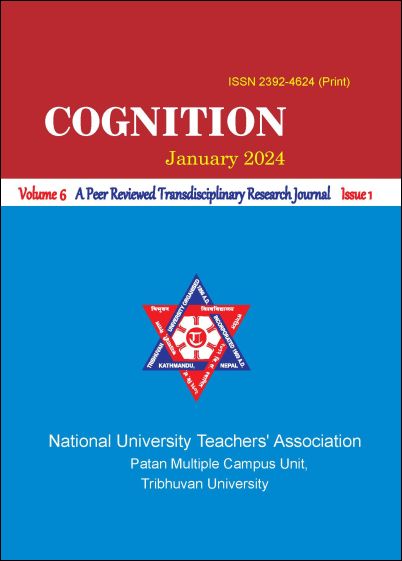Interconnectedness between Vedanta & Poetry of T.S. Eliot and W.B. Yeats’ Poetry
DOI:
https://doi.org/10.3126/cognition.v6i1.64443Keywords:
Vedanta, Philosophy, Myth, Influence, ImagesAbstract
This paper studies the impact of Eastern philosophy on the writings of both T.S. Eliot and W.B. Yeats. The research demonstrates interconnectedness between the Vedic philosophy and the western writers particularly the thoughts pervasive in the writings of Eliot and Yeats. Eliot engaged deeply with Eastern philosophy in ways which significantly influenced his worldview and his poetry. Eliot’s PhD thesis was on the idealist metaphysics of F.H. Bradley, which he found appealing due to its affinities with Indian philosophical sensibilities. Eliot was influenced by both Hinduism and Buddhism, and especially by the Bhagavad Gītā, which he described as one of the greatest philosophical poems, and by the Mādhyamika or Middle Way Buddhist philosophy of Nāgārjuna. The references to Indian literature are particularly prominent in The Waste Land, several section titles of which they reference Indian imagery. For instance, ‘The Fire Sermon’ references the sermon of the same name delivered by the Buddha; ‘Death by Water’ engages with Indra’s slaying of Vṛtra to release the waters in the Rig Veda; ‘What the Thunder said’ references the eponymous episode from the Bṛhadāraṇyaka Upanishad.




